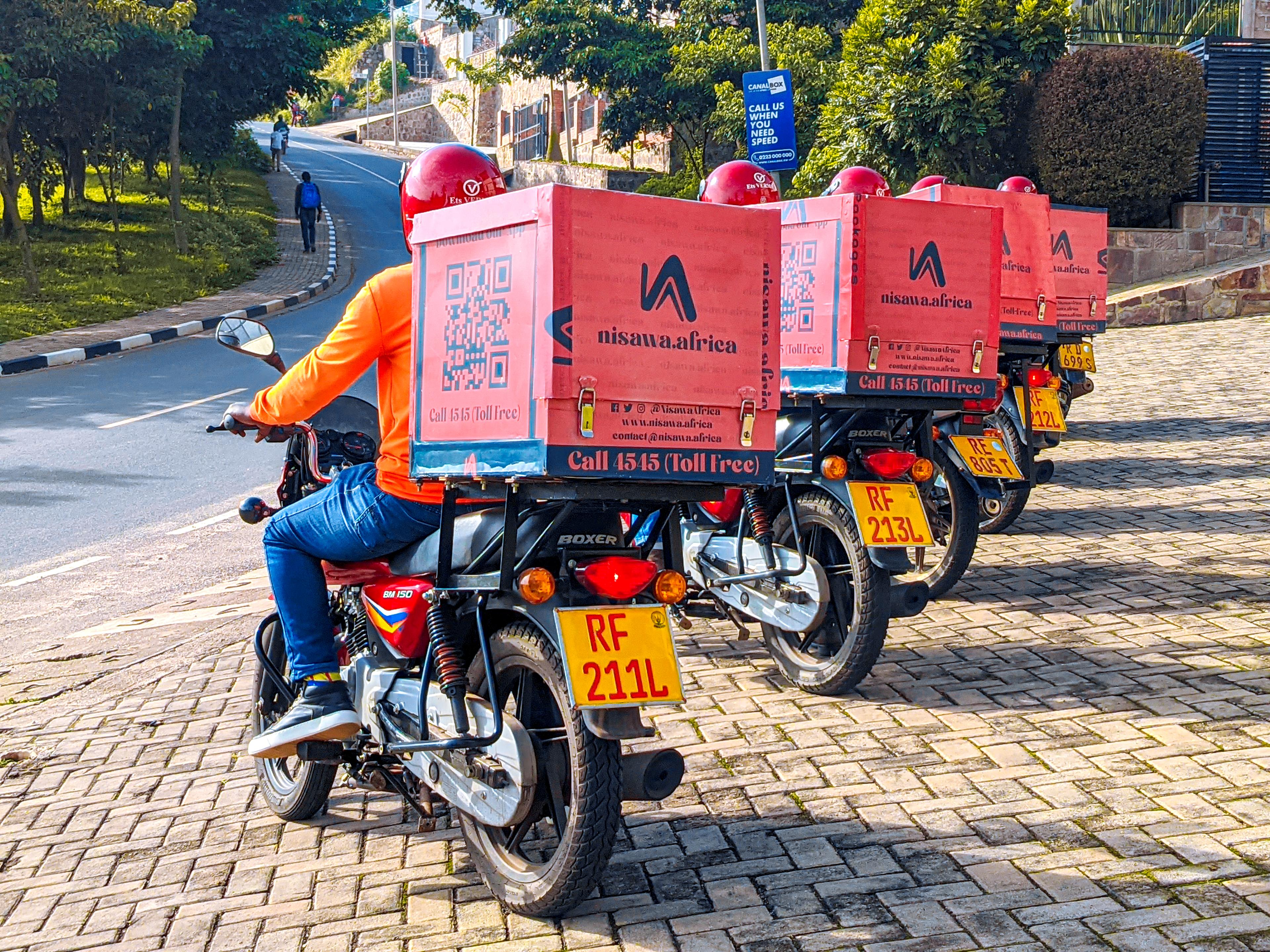Can you imagine how you’d get a package or meal delivered to you if your house did not have a physical address? Now imagine how that would work if your local food delivery, postal, or parcel services were also ineffective, lacked the technology, or didn't exist at all.
This is the reality faced by most businesses operating in African cities. For them, these aren’t hypothetical questions. They have to rely on informal, unreliable, unprofessional, and oftentimes frustrating ways to send goods to customers who desperately need them delivered. They typically resort to using individual, independent motorbike taxi drivers. They’d stop a random driver on the street, hand him the package, provide rough verbal directions and a phone number of the customer to call when nearby. These hacks pose many challenges including the lack of trust and professionalism (motorbike drivers are just independent individuals unaffiliated with any company), slow delivery speed (need for additional directions over phone calls), lack of appropriate delivery tools, and inability to track deliveries. For businesses, these challenges frequently lead to stolen, lost, or damaged packages and frustrations due to inefficiencies, awful customer experience as well as limitations on the type and value of the package they’d be comfortable sending through this approach.
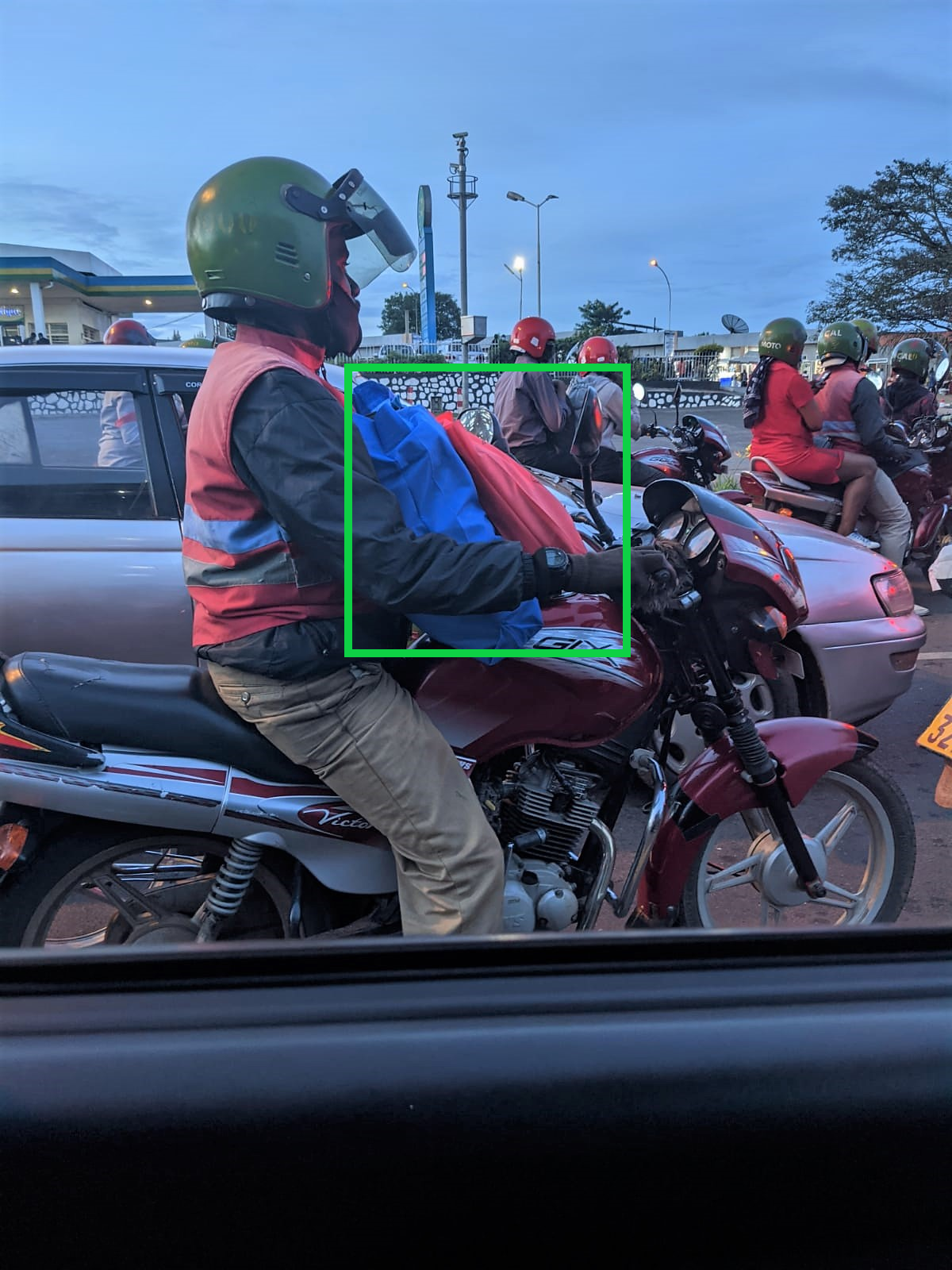
Informal delivery in Kigali, Rwanda. Here, a motorbike taxi driver is being used to carry the two packages in blue and red. He has been given verbal directions and will be calling the sender and receiver to continuously receive directions to the drop-off location.
After personally facing these challenges, we set out to create Nisawa, an on-demand, last-mile delivery service with the goal of enabling businesses in African cities to reliably deliver goods to their customers.
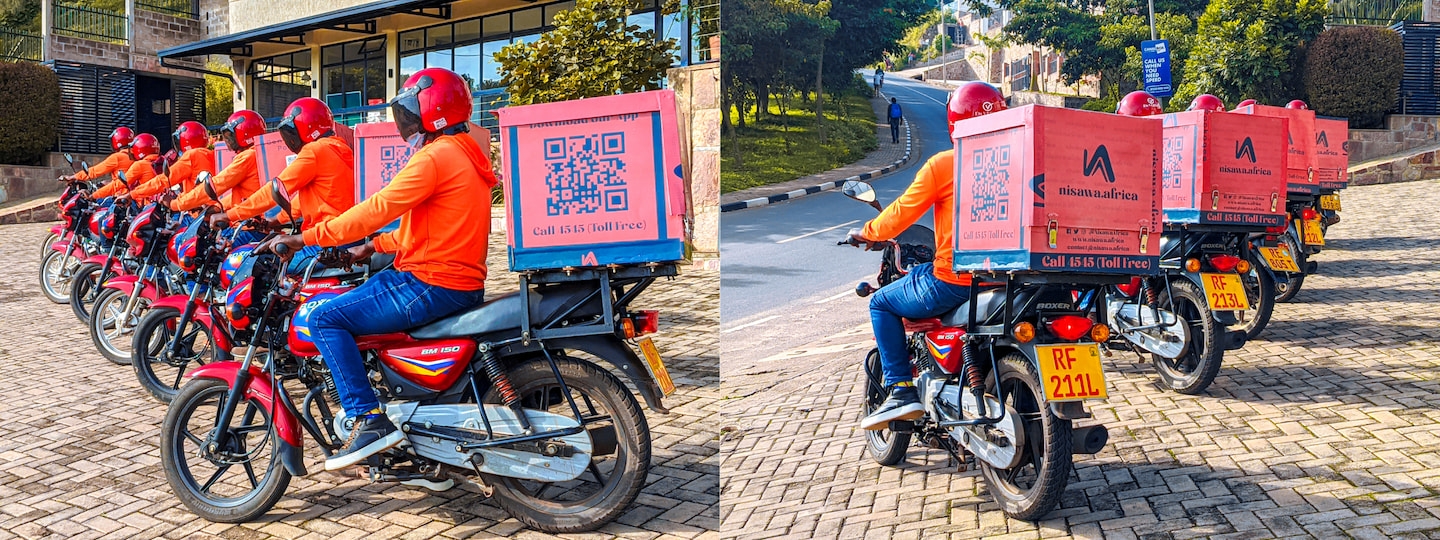
Nisawa fleet of delivery drivers. All our drivers undergo a thorough background check process. Adherence to the highest professional conduct is a core priority.
Nisawa is tackling this problem with its fleet of professional, well-equipped delivery drivers and tech infrastructure. Using mobile and web applications, businesses are now able to deliver goods to their customers even in the absence of physical addresses. To achieve this, Nisawa uses an embedded map with thousands of “landmarks” which include businesses, schools, churches, or government offices that can be used as reference points for delivery purposes. Given the ubiquity of such landmarks in African cities, any location is typically within 200 meters of a landmark. After narrowing down to a nearby landmark, the exact location (geographical coordinates) is then pinpointed on the map. Alternatively, a user can elect to use the current location of her device or securely share her location with a specific business through the app. Once all the delivery details are in place, a delivery driver best positioned to perform the delivery is dispatched and notified via our driver mobile app.
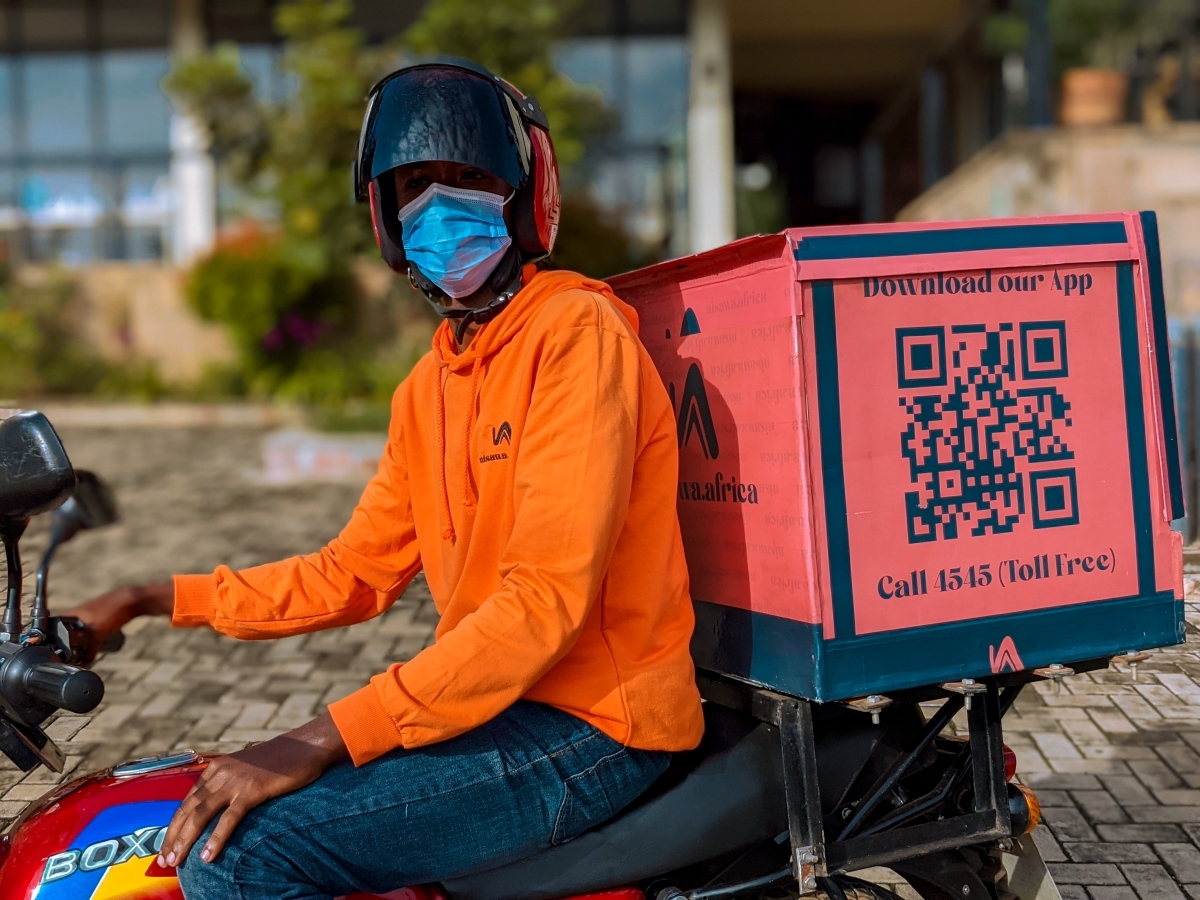
Delivery box mounted on a regular motorbike.
Another important aspect of Nisawa’s delivery solution is the delivery containers. We went through several iterations until we came up with a design that allows for a delivery container to be easily placed on any motorbike. This is significant as it enables us to recruit delivery drivers from the existing pool of motorbike taxi drivers who already own motorbikes. The boxes are 55 cm in all the three dimensions and can carry any package that fits into such a volume.
Nisawa demo video. A delivery driver is dispatched and notified via a mobile app.
Nisawa launched beta on January 19th, 2021 with a handful of business partners in Kigali, Rwanda, focusing on testing, incorporating feedback from our business partners, and increasing efficiency (average delivery duration). Up until the start of Replit Ventures, Nisawa had completed 1237 deliveries and had reached 96 weekly deliveries. Our set goal coming into Replit Ventures was to grow our weekly deliveries at 15% week over week i.e. from 96 to 167 weekly deliveries after four weeks. In the end, we grew our weekly deliveries to 251 with an average weekly growth rate of 27.2% entirely through word of mouth.
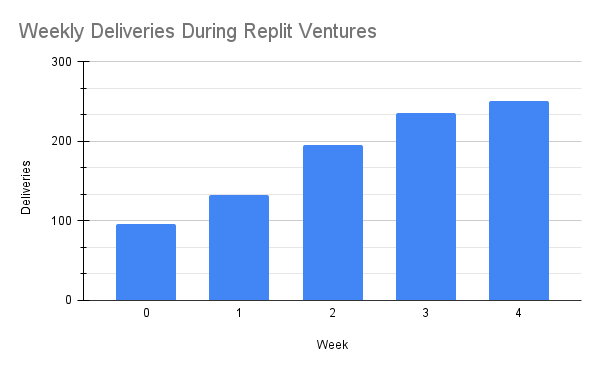
Nisawa's weekly deliveries during Replit Ventures
Before RV0, we did not have any measurable goals. Through RV0, our single focus became to make sure we grow the number of deliveries by at least 15% each week. To achieve this goal, we had to make a couple of changes. First of all, although we knew the biggest demand was coming from businesses, we were still trying to appeal to both consumers and businesses i.e. C2C and B2C deliveries. This has since changed as businesses are now at the center of everything we do and it is much easier to make decisions whether about product or marketing. Secondly, we made sure every single person on the team -- including delivery drivers -- understands our weekly goal. These seemingly small changes have brought many ideas that have enabled us to almost triple the number of weekly deliveries in just four weeks.
The problem of unreliable delivery in African cities isn’t new. Until recently, cash payment upon delivery was a major obstacle to creating a successful solution. Without any upfront payment, time-sensitive customers could easily change plans and cancel deliveries after a driver is dispatched. Moreover, delivery drivers would spend a lot of time collecting cash and looking for change. Such hurdles made deliveries inefficient and operations hard to manage. With Covid-19, mobile money adoption has more than doubled and now most customers can pay digitally using their mobile wallets. As most people in African cities already have smartphones with an internet connection, for the first time we see a path that can lead to a widely adopted and robust delivery infrastructure that allows businesses to serve their customers reliably. Such a delivery infrastructure will provide the foundation for all sectors that require reliable delivery capabilities as a prerequisite.
Now as Replit Ventures comes to an end, we’re launching publically with our next steps including focusing on the acquisition of business partners, continuous improvement to our platforms to address feedback and various needs of our business partners, and exploring expansion to other cities in Africa.
Intriguingly, the success of Nisawa means you’d be able to locate precisely any house or building in African cities and get a package delivered reliably to that location. With such technology and logistical capabilities, Nisawa will have laid the groundwork for e-commerce, food and grocery delivery and any other related services that have yet to be widely adopted in Africa.
If you want to reach out, feel free to shoot us an email at [email protected].
The Team Behind Nisawa

Anselme Mucunguzi (left) and François Birori (right)

